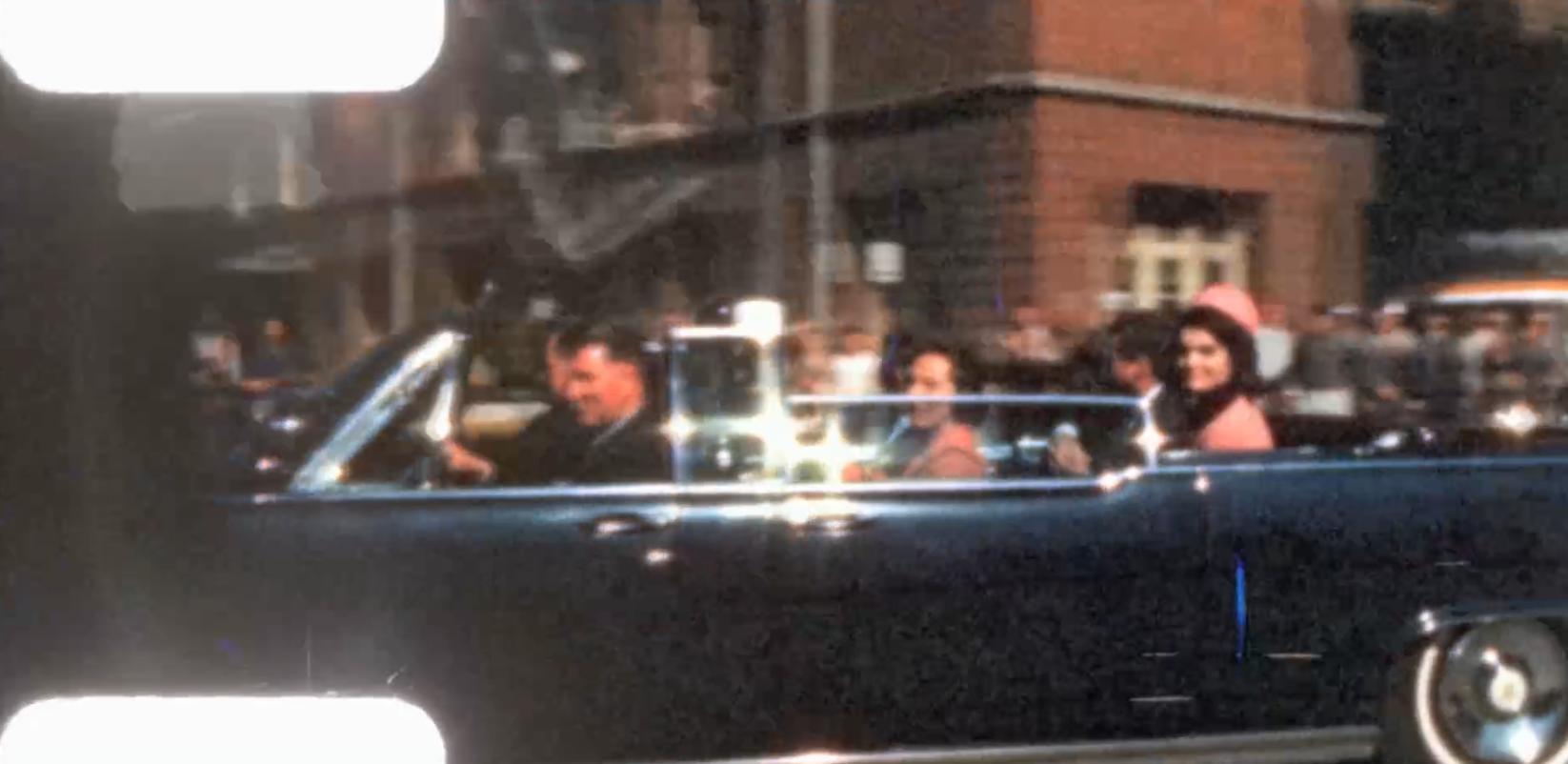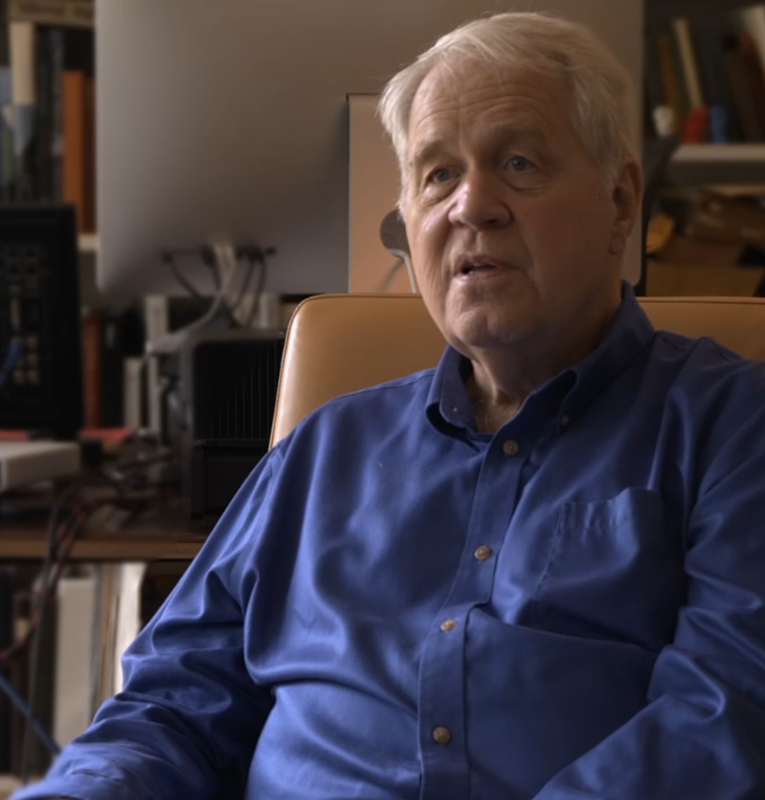
Screenshot from KERA

Audio By Carbonatix
It’s been 60 years since a lone gunman (depending on whom and what you’re willing to believe) took the life of President John F. Kennedy from a sixth floor window of the Schoolbook Depository in Dealey Plaza. The city of Dallas took the full brunt of the country’s wrath even though one man who wasn’t even from Dallas pulled the trigger.
Filmmaker and journalist Quin Mathews combed through hundreds of angry letters the city received following Kennedy’s death, one of which condemned Dallas as the “City of Hate” in capital letters.
The letter may have been a heated, angry reaction to an unthinkable tragedy, but it also contained a ring of truth.
“The morning Kennedy came, The Dallas Morning News ran a full page ad saying ‘Welcome to Dallas’ and accused him of being soft on communism,” Mathews says. “I really thought for most of the last 60 years that it didn’t matter at all, but in the last few years, I’ve had a lot of experiences of seeing words spoken and violence flow.”

Filmmaker and journalist Quin Mathews talks about how being at Love Field the day that President Kennedy came to Dallas just hours before his tragic death changed his life in a new documentary called City of Hate.
Screenshot from KERA
Bart Weiss, the founder of the long-running Dallas VideoFest and producer of the KERA series Frame of Mind, decided the time was right to re-examine the atmosphere that led to such a violent stain on America’s history through the lens of the people who were living it.
The project produced a documentary called City of Hate, presenting stories and interviews of Dallas residents who recall not just the days leading up to and following Kennedy’s death in Dallas but the atmosphere of hate that swirled over the city before that fateful day and decades later.
The Frame of Mind episode will be rebroadcast at 10 p.m. on Thursday, Dec. 21, on KERA and is currently available for viewing on the PBS Passport app and the KERA website. The producers also plan to screen the film at the Sixth Floor Museum in January 2024.
Weiss says Mathews’ film is his second in a decade to revisit the day of Kennedy’s assassination. This film explores something more personal that could present pertinent stories about the events of that day for the people who called Dallas home, and offers an important lesson we never seem to learn about how extreme rhetoric can easily lead to deadly consequences.
“The last time [Mathews] did it, we had other stories, but it wasn’t personal to him,” Weiss says. “He was there at Love Field [when Kennedy came to Dallas in 1963] and it just changed his life. When this happened, I was living in Philadelphia and it did not impact me in the same way. I thought the stuff he talks about there was great, very profound and very personal. Quin has been making films for a long, long time but it’s never been this personal. Clearly, he wanted to say how this affected him and his contemporaries. It was really important to get that sense of how it changed people’s lives.”
The film has a sense of public purpose, aiming to record the views of the people who lived in Dallas and bore the brunt of the country’s anger in the wake of Kennedy’s death. Weiss says they felt it was important to have those views recorded for posterity and historic preservation.
“It’s good to hear the voices of the people who lived through it because in 20 years, they’ll be dead,” Weiss says. “It’s not just what it was but how it affected their lives, because there will be no one there to tell us that. The second thing is, it’s happening again.”
Weiss is referring to the rise of hateful rhetoric that seems to fuel waves of real violence and the human trend of forgetting or even ignoring the lessons those moments can teach us that ensure their inevitable repetition. City of Hate doesn’t examine the assassination in a historical vacuum or even as a happenstance of bad timing. The documentary takes an honest look at the darker parts of Dallas’ violent history, such as the 1860 execution of three enslaved black men for an arson they didn’t commit. The history lesson continues up to the days before Kennedy’s visit, such as the day the “Mink Coat Mob,” led by five-time U.S. Rep. Bruce Alger, allegedly spat on future first lady Lady Bird Johnson outside the Adolphus Hotel, and a speech by then-UN Ambassador Adali Stevenson to a Dallas crowd that included a vocal group of right-wing dissenters leading to Stevenson being struck with a protest sign.
“Dallas was making all this noise about Kennedy, and then the police chief [Jesse Curry] went on television telling us not to do anything bad and if you do, you’ll be arrested,” Mathews says. “This is something that everyone in Dallas was aware of. What can I say? Kennedy was killed. You don’t have to say to someone, ‘Kill [that] someone.’ You just have to say you hate someone and to some, that may mean kill someone.”
Mathews recalls a more recent tragedy that put a national spotlight on our neck of the woods: the Allen Outlet Mall shooting of 2023. The gunman, Mauricio Garcia, had expressed white supremacist sympathy and hatred toward Asians in his journals and posted online screeds filled with Hispanic hatred, according to the Associated Press.
Dallas may have been unfairly subjected to the brunt of the world’s abhorrence over an unspeakable and senseless tragedy, but it’s also not an innocent bystander. The air of hatred that hung in the city’s atmosphere for decades only breeds more hate, and it may have also given “an assassin an opportunity to be a big shot,” according to Mathews.
“I used to think Dallas had no responsibility for the death of Kennedy,” Mathews says. “I don’t think Dallas killed Kennedy but I think Dallas must bear some responsibility because it was a fertile atmosphere for it happen. My mind has changed over the years. If we accept, and I do, that a lone, sociopathic gunman killed Kennedy, I think you have to assume he was probably affected by someone or encouraged to stand out by killing the President because of an atmosphere here. It didn’t happen somewhere else.”